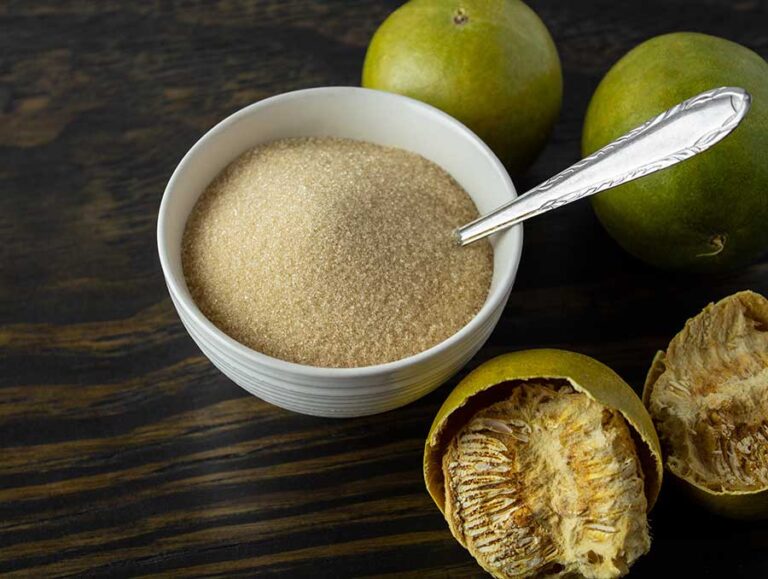In an era increasingly turning towards holistic wellness and natural remedies, one ancient plant is capturing modern attention for its staggering nutritional profile: the Moringa tree. Often hailed as the “drumstick tree,” “miracle tree,” or “tree of life,” Moringa oleifera has been a cornerstone of traditional medicine for centuries. While every part of the tree is useful, it’s the leaves that hold a particularly potent secret, especially when brewed into a simple, earthy tea.
Moringa leaf tea is more than just a comforting herbal beverage; it’s a concentrated infusion of vitamins, minerals, and powerful bioactive compounds. As we delve into the science and tradition behind this green marvel, you’ll discover why it’s earned its superhero status in the pantheon of superfoods.

A Nutritional Powerhouse in a Cup of Moringa
Before we explore its targeted benefits, it’s crucial to understand the foundational wealth of Moringa. The leaves are a veritable treasure trove of essential nutrients. They are exceptionally rich in:
- Vitamins: Vitamin A (beta-carotene), Vitamin C, Vitamin E, and several B vitamins.
- Minerals: A significant source of calcium, potassium, iron, zinc, and magnesium.
- Protein: They contain all nine essential amino acids, making them a rare complete protein source in the plant kingdom.
- Antioxidants: Packed with disease-fighting compounds like quercetin, chlorogenic acid, and beta-carotene.
This dense nutritional profile alone makes a daily cup of Moringa tea an excellent general health tonic, but its true magic lies in its ability to address specific modern health concerns.
Times of India also published an article: https://timesofindia.indiatimes.com/life-style/health-fitness/home-remedies/from-moringa-to-guava-these-5-leaf-teas-can-help-control-blood-pressure-diabetes-and-inflammation/photostory/123760927.cms
7 Health Benefits of Moringa Leaf Tea
A Natural Ally for Blood Pressure Management
Hypertension, or high blood pressure, is a silent threat to cardiovascular health for millions. Moringa leaf tea offers a natural supportive role. The leaves are a rich source of unique compounds called isothiocyanates and niaziminin. Research suggests these compounds help prevent the thickening of arteries and can counteract the dysfunctional constriction of blood vessels. Essentially, they act as a vasodilator, helping to relax the blood vessels, which improves circulation and reduces the pressure on the arterial walls. This makes it a valuable, non-pharmaceutical adjunct to a heart-healthy lifestyle that includes a balanced diet and exercise.
Supporting Healthy Blood Sugar Control
For those managing diabetes or pre-diabetes, regulating blood sugar levels is a constant focus. Moringa leaf tea has been celebrated in Ayurvedic medicine for its anti-diabetic properties, and modern science is beginning to confirm why. The key player here is chlorogenic acid, the same compound that gives green coffee its benefits.
Chlorogenic acid helps regulate blood sugar levels in two primary ways. First, it helps slow down the rate at which sugar is absorbed into the bloodstream after a meal, preventing those sharp, dangerous spikes in glucose. Second, studies indicate that compounds in Moringa can improve insulin sensitivity, allowing the body’s cells to use available insulin more effectively. This dual action makes it a beneficial complementary drink for those looking to maintain stable energy levels and support their body’s natural metabolic processes. It’s important to note that while promising, it should complement, not replace, any prescribed diabetes medication, and consultation with a doctor is advised.
Fighting Inflammation

Chronic inflammation is now understood to be at the root of most modern diseases, from arthritis and heart disease to certain cancers and autoimmune conditions. Our bodies are in a constant battle against oxidative stress caused by free radicals, and this damage drives inflammation.
Moringa leaf tea is one of the most potent anti-inflammatory tools you can find in nature. It is loaded with antioxidants, including the flavonoids quercetin and vitamin C. Quercetin is a powerful antioxidant that can help lower inflammation and combat allergic responses. Vitamin C is not only crucial for immune function but also a key player in neutralizing free radicals. By regularly consuming this antioxidant-rich tea, you help your body douse systemic inflammation, protect cells from damage, and potentially alleviate the symptoms of inflammatory conditions like arthritis. It’s like sending a team of elite firefighters throughout your body every single day.
An Overall Immune and Nutritional Boost
Beyond these targeted benefits, the sheer density of nutrients in Moringa tea makes it an incredible daily tonic. The high vitamin C and A content provides a robust boost to the immune system. The significant amounts of calcium and potassium support strong bones and proper muscle function. For those on plant-based diets, the iron and complete protein content is especially valuable. In many developing nations, Moringa is used to fight malnutrition, and incorporating the tea into a modern diet is an easy way to fill any nutritional gaps and promote overall vitality.
How to Prepare and Enjoy Moringa Leaf Tea
Incorporating this miracle tea into your routine is wonderfully simple. You can find it in various forms: as loose dried leaves, in tea bags, or as a powder (often called Moringa leaf powder).
Using Dried Leaves or Tea Bags:
This is the most common and straightforward method.
- Boil water and let it cool for a minute after boiling to around 90-95°C (194-203°F). Avoid pouring boiling water directly onto the leaves, as it can degrade some of the delicate nutrients.
- Place one teaspoon of dried leaves or one tea bag into your cup or teapot.
- Pour the hot water over the leaves and cover to prevent the volatile oils and compounds from escaping with the steam.
- Steep for 5-10 minutes. A longer steep will result in a stronger, more potent brew and a richer green color.
- Strain the leaves or remove the tea bag. Enjoy as is or add a natural sweetener like raw honey, a dash of maple syrup, or a squeeze of fresh lemon. Lemon not only enhances the flavor but can also aid in the absorption of the iron present in the leaves.
Using Fresh Leaves:
If you’re lucky enough to have access to a Moringa tree:
- Harvest a handful of fresh, green leaves and give them a thorough wash.
- Place them in a cup or teapot.
- Pour hot (not boiling) water over them and steep for 5-7 minutes.
- Strain and enjoy the freshest, most vibrant cup of Moringa tea possible.
While Moringa leaf tea is generally considered safe for most people, its potency demands respect. Starting with one cup per day is advisable to see how your body reacts. As with any significant dietary change, particularly for pregnant or nursing women and individuals on medication (especially for blood pressure or diabetes), it is essential to consult with a healthcare professional first.
Moringa leaf tea is a testament to the idea that the most powerful solutions are often found in nature. It’s a humble brew with a mighty purpose, offering a simple, daily ritual that can profoundly support blood pressure, blood sugar, inflammation, and overall nutritional health. So, the next time you’re looking for a beverage that does more than just hydrate, consider reaching for a cup of Moringa tea. It’s not just a drink; it’s a daily dose of wellness, steeped in ancient wisdom and confirmed by modern science.



